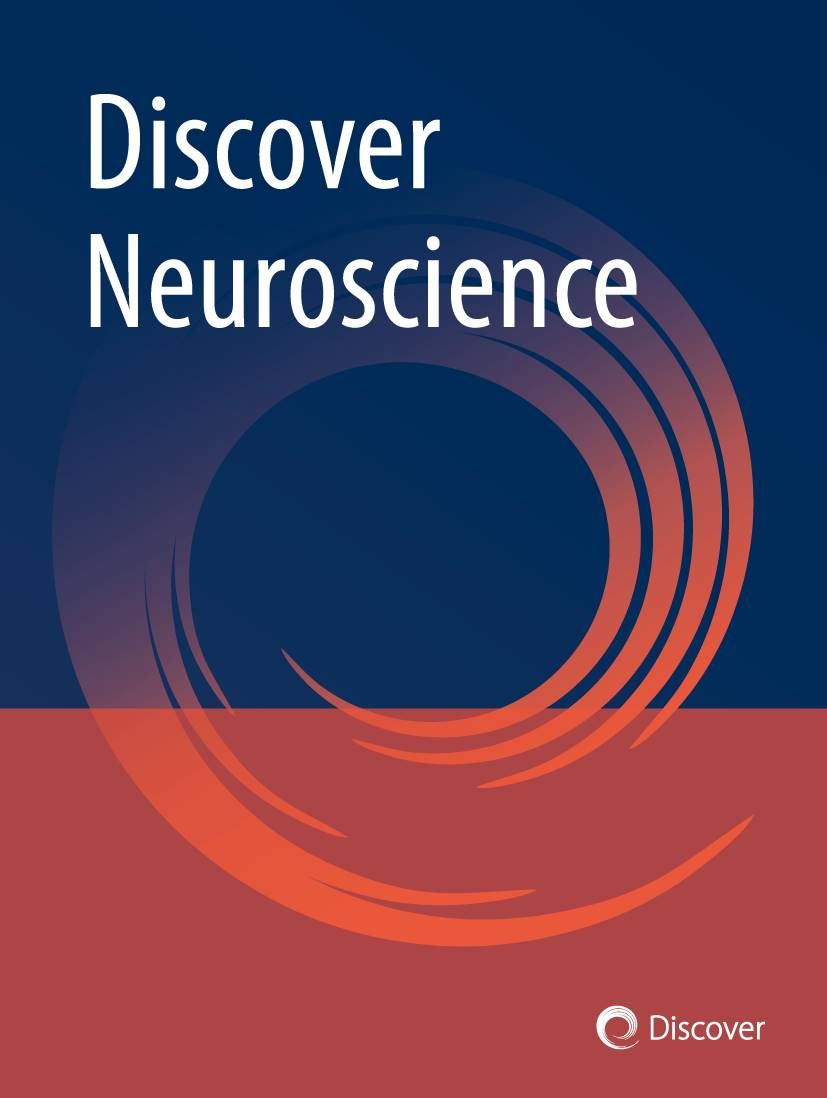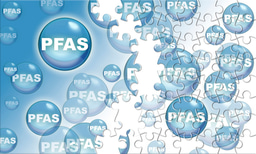Join our Editorial Board as Section Editor for Discover Neuroscience
Published in Neuroscience and General & Internal Medicine

Discover Neuroscience, a fully Open Access, peer-reviewed research journal that provides a platform for the rapid dissemination of multidisciplinary research across all fields relevant to neuroscience. Discover Neuroscience is a new journal within the Discover portfolio, part of Springer Nature, and launched in January 2025.
Like other journals in the Discover portfolio, Discover Neuroscience has been created with research community needs in mind. We provide a fast, reliable and inclusive publishing service while maintaining integrity at the heart of everything we do.



We now have Section Editor position available for Discover Neuroscience, which is two-year contracted with an annual honorarium.
What will you do as a Section Editor at Discover Neuroscience?
Section Editors are members of our academic leadership at the journal, and while the option to handle papers regularly is still available, and may be called upon for certain delayed or complex submissions, the focus of the role is on the development of the journal with an eye to the research community that it serves. Section Editors advise the publisher on key developments in their field, play an active role in the academic scope of the journal, engage in Editorial Board meetings and represent the journal to the community and their peers.
As a Section Editor, you will be asked to support the Journal by:
- Advising the publisher and the Board on aspects of journal development such as academic scope, diversity of our papers and editorial board, and standards within the field
- Supporting authors and the Journal by reinforcing an inclusive ethos: quality, integrity, relevance are essential for consideration - novelty and impact are nice to have, but not required
- Assessing manuscripts’ suitability for the journal: Is the paper in scope and scientifically suitable? Should it be sent to peer review?
- Making occasional editorial decisions on manuscripts after peer review, with a focus on manuscripts that have been delayed or complex cases; our publishing team can support completing the reviewer invitation and secure reports for you if you wish
- Being available to act as a reviewer on occasional manuscripts that require objective reports on quality, when members of the Editorial Board are unavailable or unsuitable for specific manuscripts
- Advocate for your journal within your community and network to increase awareness of publications, collections and other developments on the journal
- Inviting your peers to join the Discover community as editorial board members, guest editors, and authors
- Working with the publisher to maintain an active community of Senior Editorial Board Members
- Attracting submissions to the journal by inviting your peers to submit, or occasionally submitting your own work
- Attending and actively contributing to the Editorial Board meetings
- Engaging with our community outreach and discussions
Who are we looking for?
We are seeking candidates with excellent backgrounds in one of the research fields below:
- Neurodegenerative disorders
- Cerebrovascular diseases
- Neuroimaging
- Neuropharmacology
- Molecular and cellular neuroscience
If you are an expert with a high research profile in one of these research fields, are active in your areas in recent years, have had editorial experiences, and are keen to support the growth and development for an open access journal, please do not hesitate to contact me (yao.guo@springernature.com) for applications and/or questions.
Please supply a most recent CV, highlighting any relevant publications and editorial experiences to the post, should you be interested in applying.
Look forward to hearing from you.
Follow the Topic
-
Discover Neuroscience

Formerly Neural Development, this journal is a fully open access, peer-reviewed journal supporting multidisciplinary research across all fields relevant to neuroscience.
Your space to connect: The Psychedelics Hub
A new Communities’ space to connect, collaborate, and explore research on Psychotherapy, Clinical Psychology, and Neuroscience!
Continue reading announcementRelated Collections
With Collections, you can get published faster and increase your visibility.
Neuromotor Movement Variability: Theoretical Foundations, Experimental Insights, and Neurorehabilitation Applications
Movement variability—once dismissed as mere “noise”—is now recognized as a fundamental feature of neuromotor control, reflecting the dynamic interplay between cortical commands, subcortical modulatory networks, and peripheral feedback. Controlled fluctuations in kinematic, kinetic, and neural signals underpin adaptability, skill acquisition, and resilience to perturbations. This collection examines how movement variability emerges from neural circuit architecture and informs both healthy function and compensatory strategies after injury.
We welcome theoretical contributions that leverage frameworks such as dynamical systems theory, optimal feedback control, and the concepts of redundancy and degeneracy in motor networks. Experimental studies applying nonlinear metrics (e.g., entropy, fractal dynamics, Lyapunov exponents) or network analyses (electroencephalography and magnetoencephalography (EEG/MEG) connectivity, functional magnetic resonance imaging (fMRI)-based graph theory) to quantify complexity at multiple levels of the sensorimotor hierarchy are encouraged. This collection also highlights neurophysiological investigations into variability biomarkers for neurological disorders. Submissions may explore how altered variability profiles signal early Parkinson’s disease, predict fall risk in elderly and post-stroke cohorts, or distinguish cerebellar ataxia subtypes. Integrative studies combining motion capture, inertial measurement units, and EMG coherence analyses to map the neural origins of variability are especially valued.
Translational research is sought on neurorehabilitation strategies that harness movement variability to drive plasticity. We invite reports on variable-practice training, robotic perturbation protocols, and virtual/augmented reality interventions that use controlled unpredictability to optimize motor relearning. Contributions demonstrating how individualized variability metrics can guide therapy dosing and monitor recovery will bridge bench to bedside.
Topics of interest include, but are not limited to:
• Theoretical Frameworks for Movement Variability: The application of dynamical systems theory—where variability reflects the exploration of stable attractor states—stochastic optimal control—where trial-to-trial fluctuations balance exploration and exploitation—and redundancy or degeneracy in the motor system—where multiple solutions create flexible movement patterns—shows how the nervous system actively modulates variability to enhance performance and learning.
• Neurophysiological Evidence: EEG /MEG, fMRI, Transcranial Magnetic Stimulation (TMS), and Electromyography (EMG) synergy analyses linking variability to network dynamics and synaptic plasticity.
• Biomechanical and Electrophysiological Metrics of Variability: Nonlinear measures—such as sample entropy for gait cycle irregularity, fractal dimension for scale-invariant joint-angle patterns, and Lyapunov exponents for postural stability—are used to assess movement variability in posture, walking, and upper-limb tasks.
• Movement Disorders and Diagnostics: Variability signatures in Parkinson’s disease, stroke, cerebral palsy, and ataxia—and their use in early detection and monitoring.
• Rehabilitation Strategies: Variable-practice protocols, error-augmentation, robotic perturbations, and virtual-reality paradigms designed to harness variability for neuroplasticity and functional recovery.
By uniting neuroscientists, neurologists, biomechanists, and rehabilitation specialists, this collection aims to translate foundational insights into patient-centered interventions that optimize motor function, prevent falls, and accelerate recovery across neurological populations.
Keywords: movement variability, motor control, biomechanics, adaptability, performance, rehabilitation, neurophysiology, motor learning, complexity.
Publishing Model: Open Access
Deadline: Apr 29, 2026
Innovative Strategies for Peripheral Nerve Regeneration after Trauma
Peripheral nerve injuries, often resulting from traumatic events, continue to pose significant clinical challenges, frequently leading to long-term functional deficits and reduced quality of life. Although peripheral nerves exhibit an intrinsic capacity for regeneration, optimal functional recovery remains elusive. This underscores an urgent need for neuroscience-informed strategies that enhance repair mechanisms, promote neuroplasticity, and lead to improved clinical outcomes.
This Article Collection seeks to unite breakthroughs from neuroscience, regenerative medicine, and bioengineering to address the complexities of peripheral nerve repair. Emphasis is placed on elucidating the neural signaling pathways, cellular processes, and mechanical forces that govern peripheral nerve regeneration. Recent advances in biomaterials, growth factor delivery, cellular therapies, and advanced neurosurgical techniques offer promising avenues to augment the natural regenerative process and restore neurological function.
We invite original research, comprehensive reviews, and clinical studies that delve into the molecular and cellular mechanisms of peripheral nerve regeneration after trauma, including investigations into neurotrophic factor signaling, extracellular matrix modulation, and the role of Schwann cells in facilitating axonal growth. We also welcome contributions that focus on innovative biomaterial scaffolds, stem cell and other cellular therapies, neuroimaging and neuromodulatory strategies, as well as novel surgical techniques for peripheral nerve regeneration after trauma. By integrating insights from basic neuroscience with clinical applications, this collection aims to foster interdisciplinary collaboration and translate laboratory discoveries into effective, patient-centered therapies.
Topics of interest include, but are not limited to:
• Mechanisms of Regeneration & Neural Plasticity: Intracellular signaling cascades, Schwann-cell dynamics, and activity-dependent axon guidance.
• Biomaterials & Scaffold Technologies: Conduit microarchitecture, biochemical functionalization, and mechanotransduction for directed axonal extension.
• Cellular Therapies: Applications of stem cells, Schwann-like cells, exosomes, and genetically engineered cell populations.
• Neurotrophic & Neurotransmitter Signaling: Roles of nerve growth factor, brain-derived neurotrophic factor, Glial cell-derived neurotrophic factor, and neurotransmitter-mediated modulation in axon sprouting and remyelination.
• Advanced Electrophysiological & Imaging Platforms: High-resolution ultrasound, diffusion tensor imaging, nerve conduction studies, and EMG for real-time monitoring of regeneration.
• Surgical & Neuromodulatory Innovations: Microsurgical nerve grafting, end-to-end and end-to-side suturing techniques, and electrical stimulation modalities (TENS, implantable nerve cuff stimulators) to enhance functional recovery.
Keywords: neurology, peripheral nerve, nerve regeneration, trauma, neuroplasticity, biomaterials, cellular therapies, neuroimaging.
Publishing Model: Open Access
Deadline: Apr 16, 2026





Please sign in or register for FREE
If you are a registered user on Research Communities by Springer Nature, please sign in